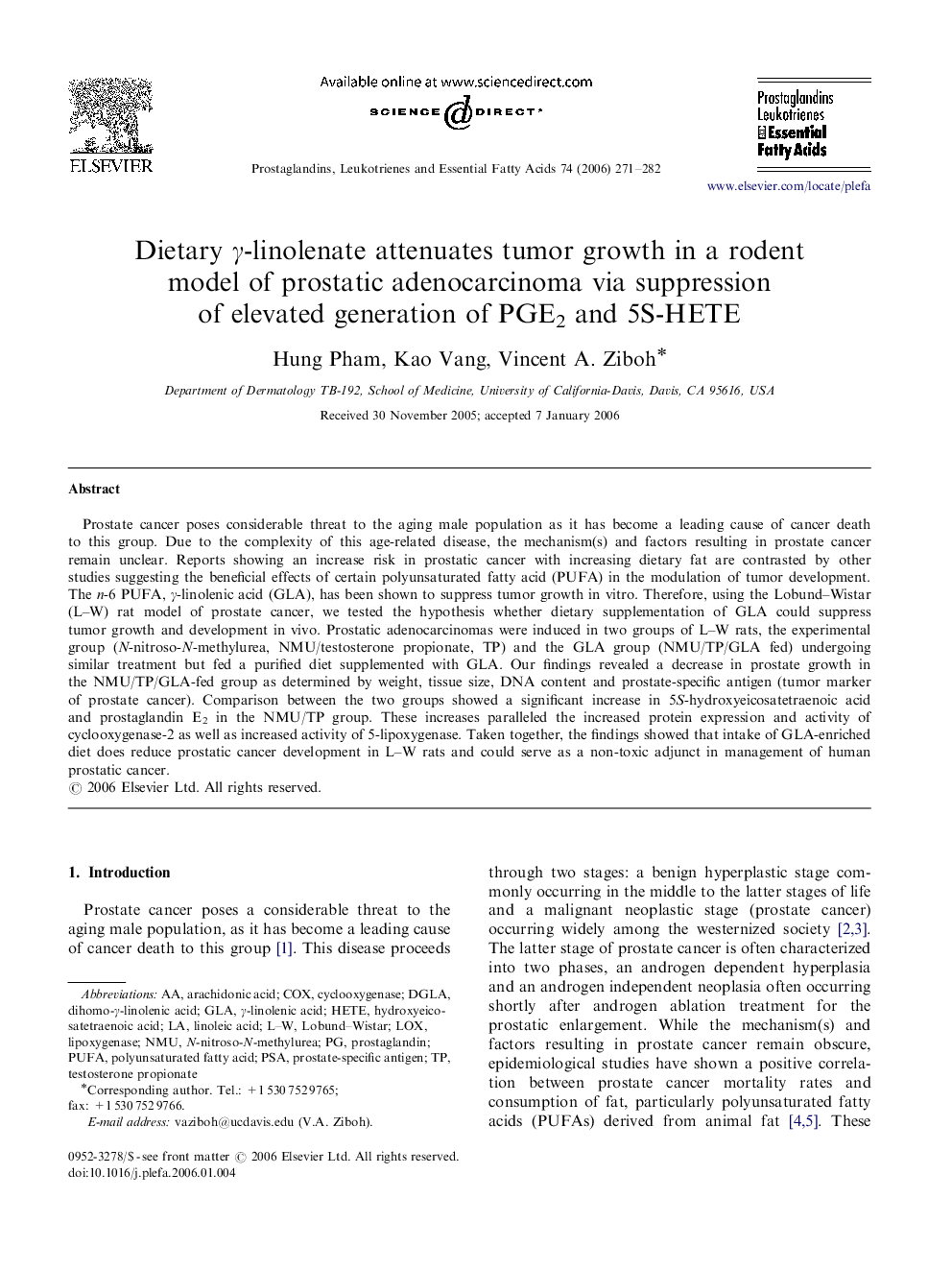| کد مقاله | کد نشریه | سال انتشار | مقاله انگلیسی | نسخه تمام متن |
|---|---|---|---|---|
| 2778420 | 1152818 | 2006 | 12 صفحه PDF | دانلود رایگان |

Prostate cancer poses considerable threat to the aging male population as it has become a leading cause of cancer death to this group. Due to the complexity of this age-related disease, the mechanism(s) and factors resulting in prostate cancer remain unclear. Reports showing an increase risk in prostatic cancer with increasing dietary fat are contrasted by other studies suggesting the beneficial effects of certain polyunsaturated fatty acid (PUFA) in the modulation of tumor development. The n-6 PUFA, γ-linolenic acid (GLA), has been shown to suppress tumor growth in vitro. Therefore, using the Lobund–Wistar (L–W) rat model of prostate cancer, we tested the hypothesis whether dietary supplementation of GLA could suppress tumor growth and development in vivo. Prostatic adenocarcinomas were induced in two groups of L–W rats, the experimental group (N-nitroso-N-methylurea, NMU/testosterone propionate, TP) and the GLA group (NMU/TP/GLA fed) undergoing similar treatment but fed a purified diet supplemented with GLA. Our findings revealed a decrease in prostate growth in the NMU/TP/GLA-fed group as determined by weight, tissue size, DNA content and prostate-specific antigen (tumor marker of prostate cancer). Comparison between the two groups showed a significant increase in 5S-hydroxyeicosatetraenoic acid and prostaglandin E2 in the NMU/TP group. These increases paralleled the increased protein expression and activity of cyclooxygenase-2 as well as increased activity of 5-lipoxygenase. Taken together, the findings showed that intake of GLA-enriched diet does reduce prostatic cancer development in L–W rats and could serve as a non-toxic adjunct in management of human prostatic cancer.
Journal: Prostaglandins, Leukotrienes and Essential Fatty Acids - Volume 74, Issue 4, April 2006, Pages 271–282